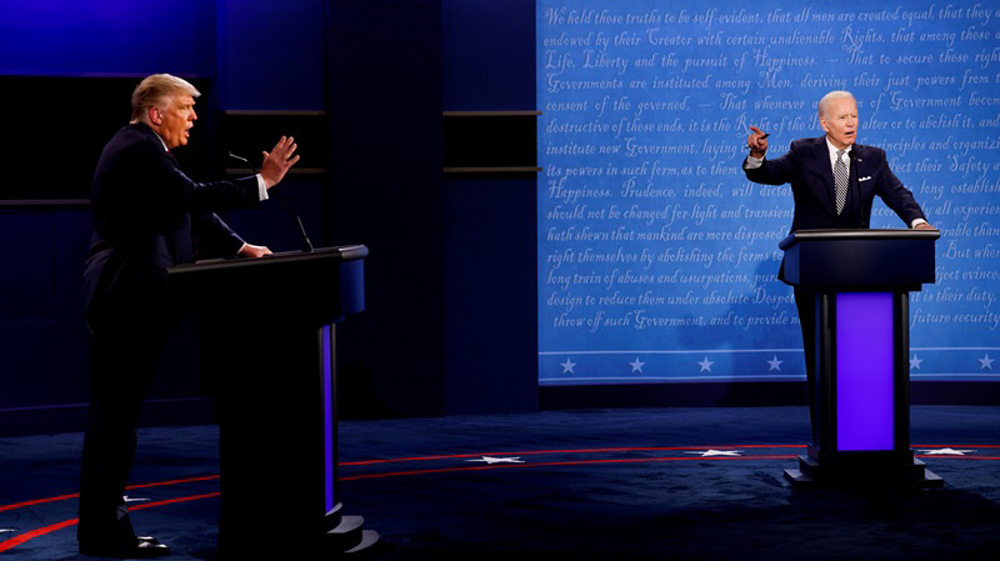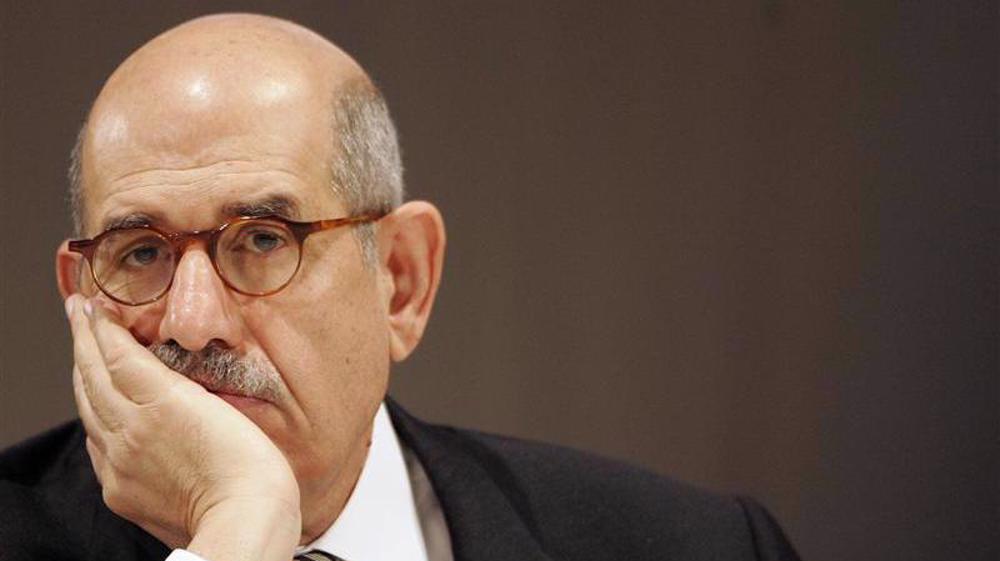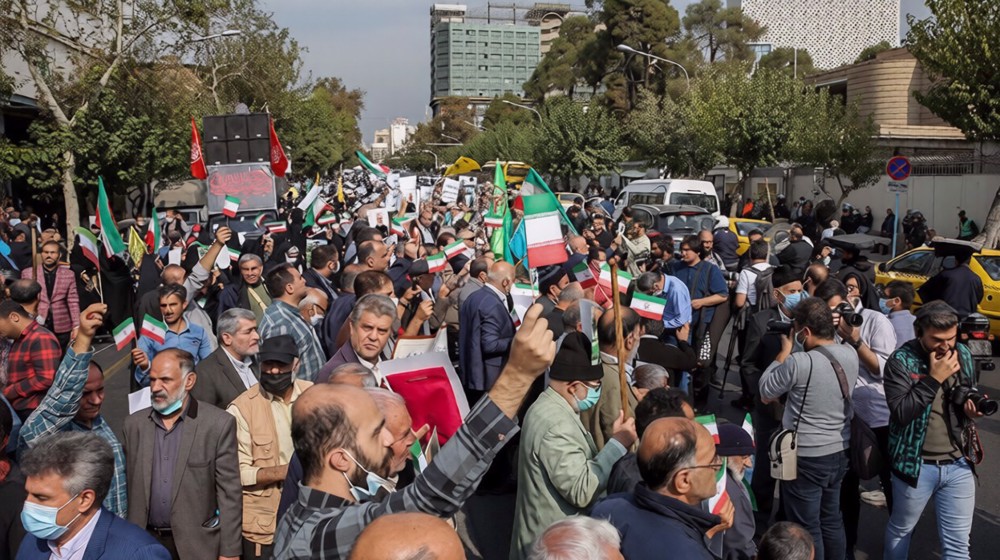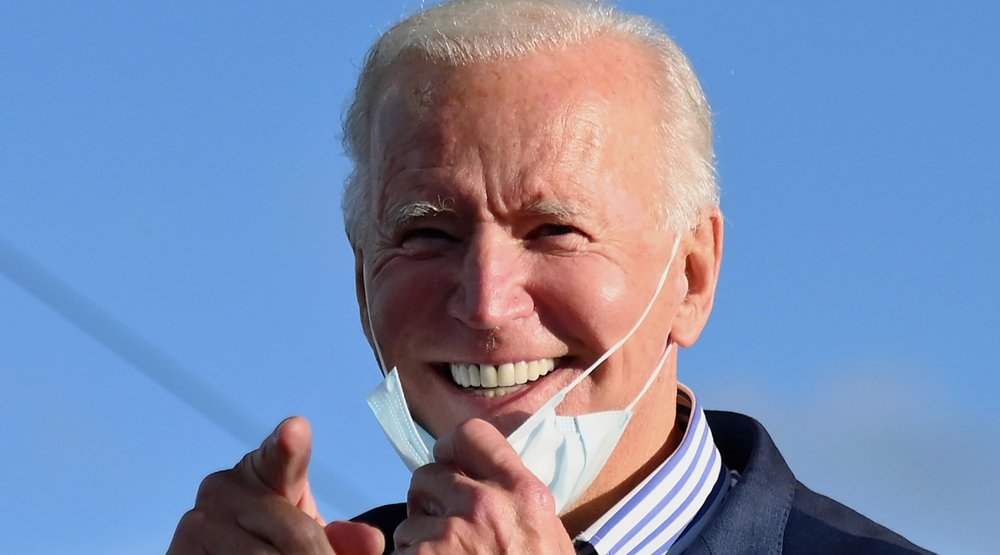Future US president must first compensate Iran for damage before rejoining nuclear deal: Govt. spokesman
Tehran says the future American president will first have to compensate Iran for the damage the US has done to the nation with its unilateral departure from the 2015 nuclear deal if he wants to rejoin the multilateral accord.
Ali Rabiei, the spokesman of Iran’s administration, made the remarks on Tuesday when asked if the United States might return to the nuclear deal, officially called the Joint Comprehensive Plan of Action (JCPOA), following the upcoming presidential election.
American voters will decide on November 3 whether Republican President Donald Trump remains at the White House for another four years or his Democratic rival, Joe Biden, will take office.
The US under Trump unleashed a so-called maximum pressure campaign against Iran in 2018, when it left the nuclear deal.
Following its withdrawal, Washington targeted the Iranian nation with the “toughest ever” economic sanctions in order to bring it to its knees, but the country’s economy keeps humming and is getting back on its feet.
“It makes no difference to us who becomes the president of the United States, and it does not matter who decides to return to the JCPOA. We act according to our principles,” Rabiei said.
The Iranian official went on to say that Tehran would welcome a decision to return to the JCPOA by any US president.
At the same time, he said, “the United States must be held accountable for the damage [it has] done to the Iranian people by its unilateral withdrawal from the JCPOA, and the US must be prepared to make other commitments to ensure that such violations will not be repeated.”
“Our policy on the JCPOA has been and is transparent. We did not leave the JCPOA when Trump left, while they thought we would do so, but we did not leave in line with our clear policy, and today we are seeing its effects,” he said.
Rabiei further defended the country’s move to suspend some of its commitments under JCPOA as a proper reaction to the US withdrawal from the nuclear accord and schemes to prevent other parties from fulfilling their commitments.
Under the JCPOA, signed between Iran and the five permanent members of the United Nations Security Council, Tehran undertook to put limits on its nuclear program in exchange for the removal of nuclear-related sanctions imposed against Tehran.
However, Trump pulled his country out of the JCPOA in May 2018 and re-imposed harsh sanctions against the Islamic Republic in defiance of global criticisms, leaving the future of the historic deal in limbo.
Critical of Washington’s move, the European parties to the JCPOA vowed efforts to keep the deal in place by protecting Tehran against the US sanctions, but did little in practice.
In May2019, a year after the US’s exit, Tehran began reducing its commitments under the JCPOA on a stage-by-stage basis in response to Washington’s pullout and the ensuing European failure to make up for America’s absence.
'Claims of Iran meddling in US vote unfounded'
Elsewhere in his Tuesday remarks, Rabiei dismissed as “unfounded” claims by US national security officials that Iran is attempting to influence American voters, saying that Tehran has no motive for or belief in meddling with other countries’ internal affairs.
“We believe that nations should be free to determine their own destiny and act without the interference of other countries,” he said.
He reiterated Iran’s neutrality in the US election, saying, “What matters to us are the policies that the winner of the election will pursue and his will to restore the rights of the Iranian people."
Last week, Director of US National Intelligence John Ratcliffe alleged that Iran and Russia had obtained voter registration information in an attempt to undermine confidence in the 2020 polls, an accusation categorically rejected by Tehran and Moscow.
Iran summoned the Swiss envoy who represents US interests in the Islamic Republic over the issue.
Hamas blasts Western media for blindly defending false Israeli narrative
ElBaradei condemns US threats of military action against Iran
‘No two-hour war’: Iran vows immediate retaliation to any attack
VIDEO | US warmongering threatens stability
Pezeshkian: US must end provocations if it seeks genuine diplomacy
Iran summons German ambassador over Merz’s ‘low-minded’ remarks
Iran's Armed Forces warn EU of ‘consequences’ of IRGC designation
Iran FM: EU’s blacklisting of IRGC a ‘major strategic mistake’















 This makes it easy to access the Press TV website
This makes it easy to access the Press TV website